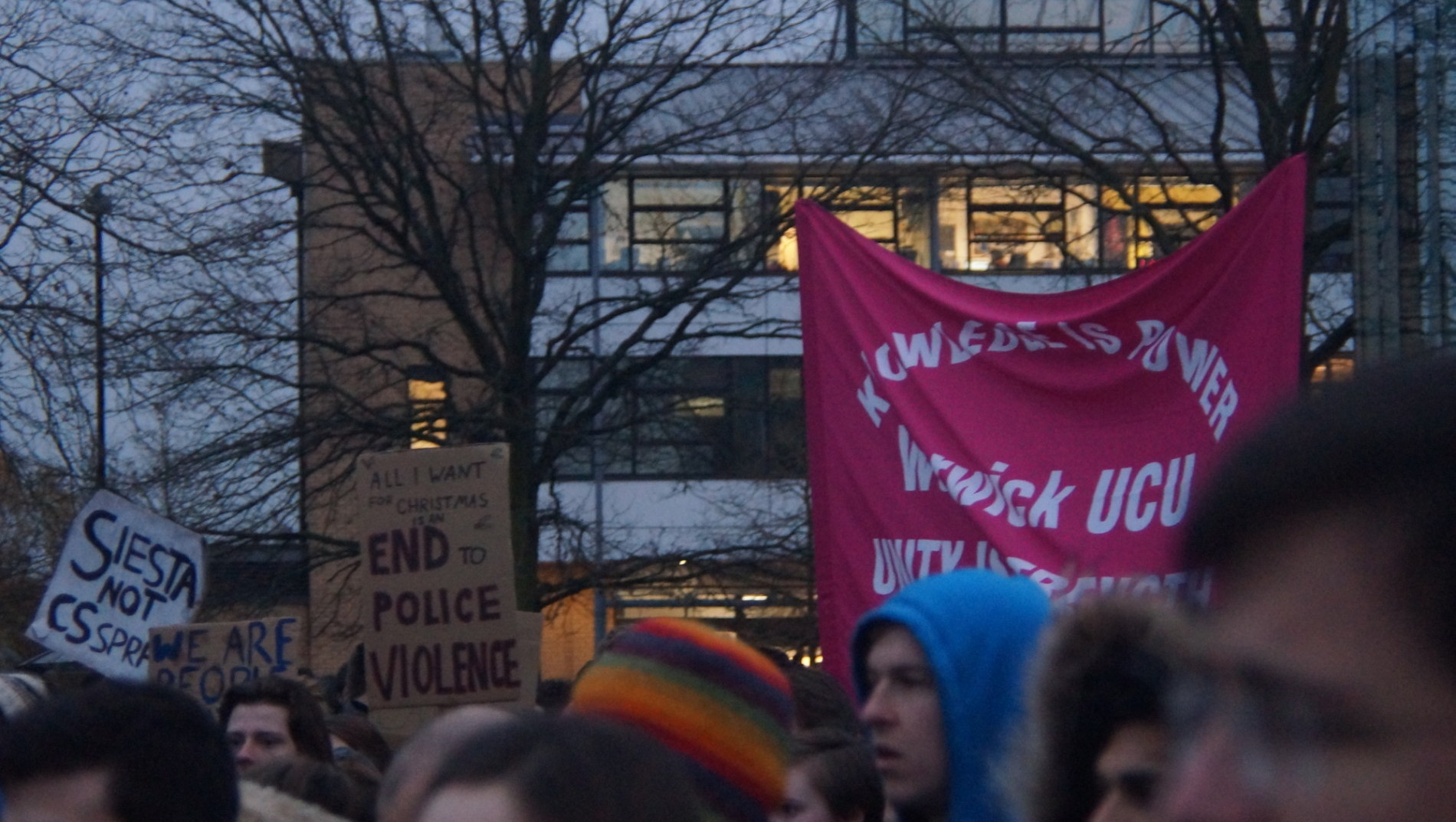This week Lacuna is focusing on protest and the university. Our choice of theme is very much linked to a series of events that will take place at the University of Warwick from 14-17 March. ‘Protest and Performance Week’ has been organised by staff and students at the university and is open to all. It includes panel discussions, comedy, film and theatre, and will feature a number of Lacuna authors. We hope that these two interventions will combine to prompt some interesting discussions about protest and free speech in the university context, and beyond.
From South Africa to India, Egypt to the United Kingdom, protests in relation to university issues seem to be on the rise. How far do the links between these disparate events extend? How are these protests speaking to one another, learning from one another? To what extent is this global unrest provoked, as one recent article claimed, by ‘common issues of race, identity, fees and unemployment’?
In Lacuna this week, Shirin Rai reports on “an undemocratic attack on one of the foremost universities of India” – Jawaharlal Nehru University (JNU) – by a government using a discourse of “sedition, nationalism and intolerance” to justify its actions. In ‘Barbarians at the Gate’, she also bears witness to the peaceful protests of staff and students, who came together to oppose this oppression.
In the United Kingdom, Alex Ferguson joined a protest in London against the scrapping of maintenance grants for the poorest students. Reflecting on the protest, he explains how he found himself ‘Inside the Kettle’, watching as a form of pre-scripted violence plays out to the assembled press corps. He wonders whether the power of protest is lost amid such scenes.
Emma Mason finds a different way of protesting, also in the context of battles against the costs of UK higher education. She explains why she read Ginsberg’s poem ‘Howl’ to the largest rally ever seen on the Warwick University Campus. In ‘Reading Howl’, Mason argues that the poem “articulates a celebratory blast of dissent and a manifesto for quietude and meditation,” while at the same time raising key questions about freedom of expression and the importance of poetry as a form of protest.
In ‘Teaching about Creative Expressions of Resistance in contemporary Cairo’, Sam Holder details his response to the recent revolutions, protests and violence in Egypt. He describes how, amidst this turmoil, he became involved in creating a new course at the American University of Cairo, which explores the role of creative expression in the face of oppression. Holder tells of initial hostility to the course and discusses the difficulty of engaging his students in the context of Egypt’s current political climate, but also hints at an optimism for the future.
In ‘Protest and Performance Week’, from 14-17 March at Warwick University, we will be looking both inward and outward. Looking inward, we will be reflecting on protests at Warwick that were the subject of much debate, and led to the organisation of a ‘protest summit’ in March 2015. One year later, we will be asking whether anything has changed. Alongside this, we will be debating how the Warwick university community should respond to the increasing costs of higher education, and we will be hearing from Warwick students about their experiences of protests. Two panellists, Alex Ferguson and Kiera Koroma, have written on this subject for Lacuna.
We will also be looking outward. And so we welcome Emily Scurrah, from the campaigning organisation 38 Degrees, to both Lacuna and Warwick. In ‘There is Power in a Union,’ Emily shares her optimism about what protestors can achieve when they work together, creatively, to tackle inequality and protect vital services. Emily will also elaborate on these ideas when speaking as part of a panel of activists next week at Warwick, who will be seeking to answer the question: ‘How do we make our voices heard?’. During this panel discussion, as well as through a broad range of other events – including film, theatre, and comedy – we hope to ask questions about protest in the UK and across the world, and to think about the relevance of these questions to our university communities.
There are many academics and students who perceive there to be a number of serious threats to free speech, open debate and protest within universities in the UK today. For instance, will the government’s anti-terrorism strategy – ‘the prevent agenda’ – create “a chilling effect on open debate, free speech and political debate”? Will the proposal to exempt universities from freedom of information requests lead to less effective student activism, and universities that are less accountable as a result? Does student politics around ‘no platforming’ and ‘safe spaces’ threaten the basic principle of democratic political exchange on the university campus?
Through our discussions and creative expressions about protest and free speech at Warwick next week, we hope to be able to provoke a variety of reflections and conversations on these issues. We will be filming these events, and will report back in Lacuna on what takes place.
Banner photo by Ann Yip for the Boar
